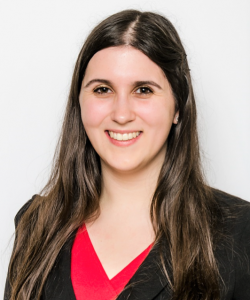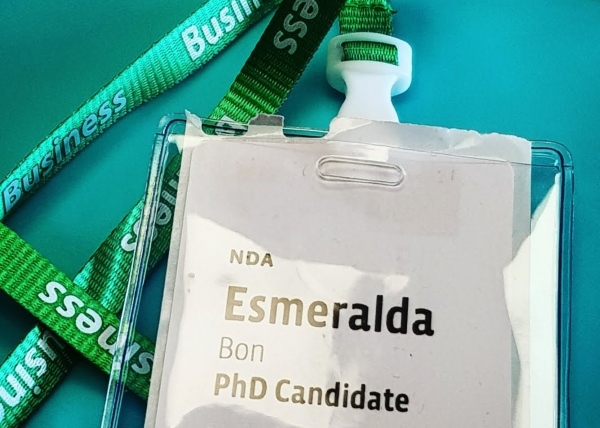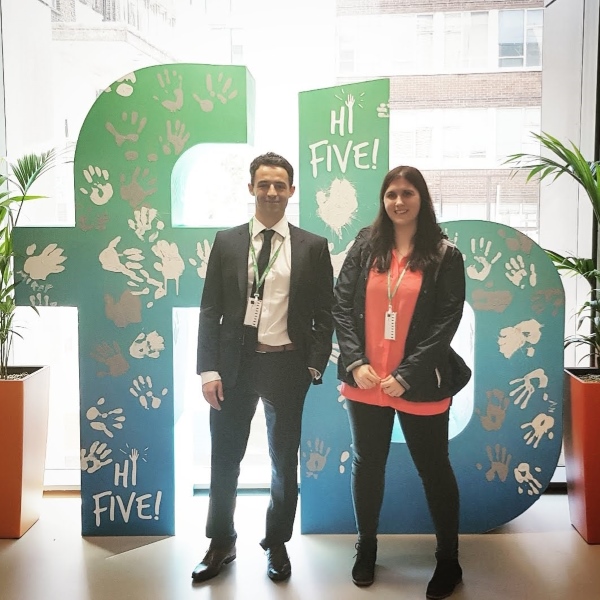 Sometimes being in academia feels like being cut off from the real world. Especially post-graduate students and early career researchers may feel like they are living in an academic bubble. This impression cannot be further from reality. Our role as #DataImpactFellows is to highlight how our research can, in fact, contribute to society. Engaging in collaborations with each other and with institutions and stakeholders is an excellent way to change the world for the better.
Sometimes being in academia feels like being cut off from the real world. Especially post-graduate students and early career researchers may feel like they are living in an academic bubble. This impression cannot be further from reality. Our role as #DataImpactFellows is to highlight how our research can, in fact, contribute to society. Engaging in collaborations with each other and with institutions and stakeholders is an excellent way to change the world for the better.
Two #DataImpactFellows, Claudia and Esmeralda, are writing a series of blog posts aimed at giving examples of best practices of collaboration for achieving impact. They will share some stories in which the academic bubble has been broken and in which people benefited by the consequences.
Everyone can achieve impact, as Esmeralda explores here.
From Serendipitous Networking to a Submitted Report
I am analysing social media behaviour for my PhD. Although my PhD project is in the field of political science, it requires me to use a ton of different methods, borrowed from linguistics, communication science, computer science and more.
After presenting my research to a lab of computer scientists here at the university, to hopefully receive some insights and feedback, we went for lunch. There, as luck would have it, I was introduced to the CEO of Yoop, with whom I ended up collaborating on a submission of evidence for a Committee report.
Yoop is an app meant to counteract selective exposure and the spread of fake news, by crowdsourcing the identification of fake news. My research, in essence, looks at the communication and a number of behavioural characteristics of UK politicians. It focuses on how these characteristics are linked to their perceived use of lies and spin. Our projects, therefore, both have a political dimension and address the question of what is fake.
With this shared interest in mind and a call for submissions coming up, we decided to collaborate. The All-Parliamentary Group on Literacy, and more specifically the Commission on Fake News and the Teaching of Critical Literacy Skills, had earlier made a call for submissions of evidence, on the topic of “How to foster critical literacy and tackle the problem of fake news”. With just a few weeks to spare, we decided to do just that: to submit evidence.
After all, this would provide an opportunity for us to share our research findings and knowledge and to eventually, and hopefully, inform policy. Thus, after a few short weeks of writing and editing, we submitted a report. Our submission included insights from recent literature on critical literacy and empirically collected data by Yoop on how younger generations use information.
After submitting this evidence, we were first invited to a consultation meeting with fellow stakeholders at the Facebook HQ, London. There we discussed our insights with peers, together highlighting what crucially had to be part of the report. We heard from secondary school students themselves how they receive and process information, especially the information that they believe to be fake. We also learned about the critical literacy curriculum here, in the United Kingdom.

Image: Visitor badge and ‘business’ lanyard received at Facebook HQ, London
The insights resulting from these stakeholder discussions, as well as the submissions of evidence, were thereafter used for informing the official report of this All-Parliamentary Group on Literacy, presented at the House of Commons, last June.
This report can be accessed here. It is a testament to the impact we have made: the Commission cites our submission to support observations and recommendations.
Being a part of this process, submitting to a call for evidence, has taught me more about how industry-academia collaborations work. It has also given me the chance to advertise my research. Not least, it has helped me extend my network, which could lead to further collaborations. I therefore definitely recommend fellow PhD students and early career researchers to submit evidence and, when possible, to team up with the industry. Who knows what impact you could have!

Image: Mattia Fosci (CEO of Yoop, left) and Esmeralda Bon (right) at Facebook HQ, London
Esmeralda Bon, @EsmeraldaVBon is one of our UK Data Service Data Impact Fellows. Esmeralda is an ESRC-funded PhD student in the School of Politics and International Relations at the University of Nottingham, in collaboration with the Committee on Standards in Public Life (CSPL), an advisory non-departmental public body sponsored by the Cabinet Office. Esmeralda is affiliated with the Centre for British Politics and the Nottingham Interdisciplinary Centre for Economic and Political Research (NICEP).
